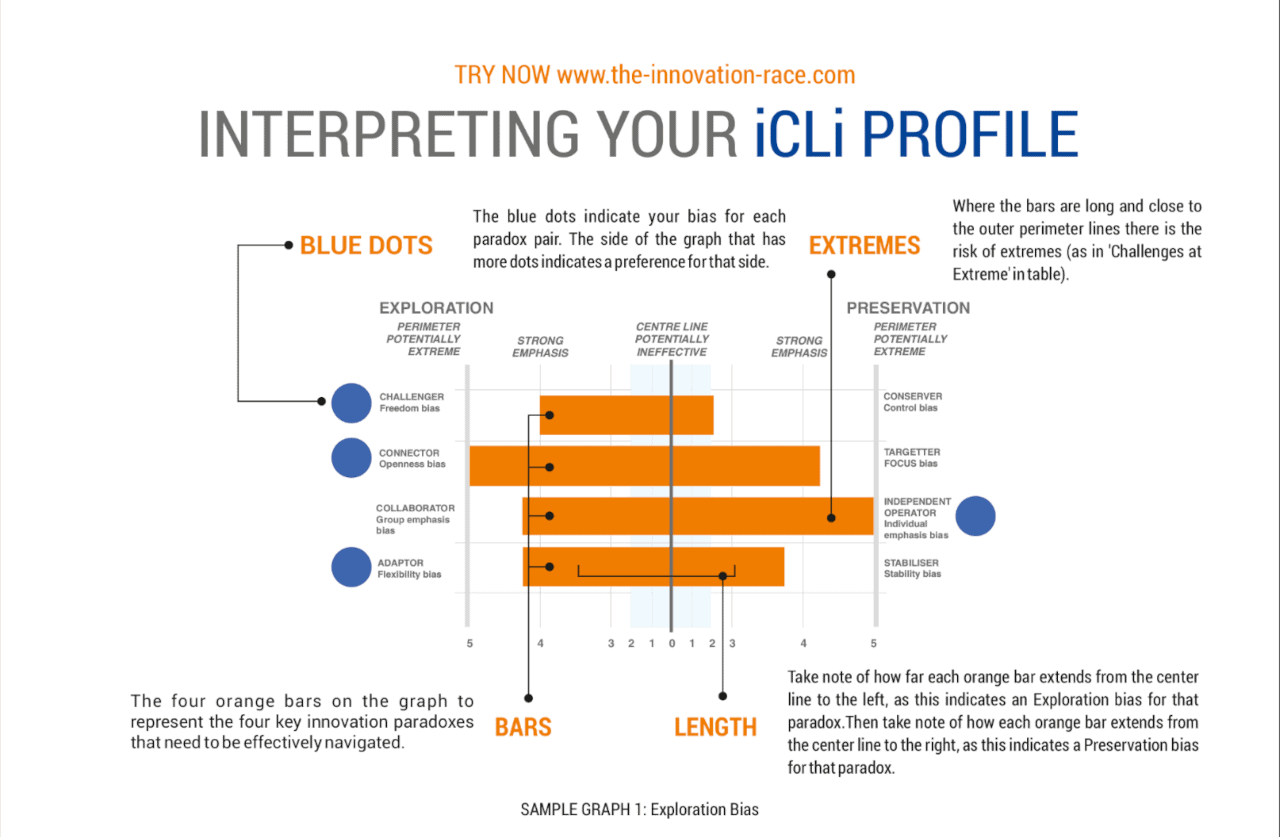INNOVATE: Future-ready Psychometric Assessment Tools
INNOVATE: Future-ready Psychometric Assessment Tools
See video about The Future-Ready Leadership program and the iCLi assessment tool, to measure Ambidextrous Leadership

Key recommended diagnostic tools to assess innovation readiness
Validated assessments based on research into how to identify alignment in leaders and cultures, and how leaders can lead for innovation and effective change management. The assessments measure the innovation climate in an organization (iCi), along with individual innovation biases (iCLi).
The iCi is also a valuable model for understanding the merging of two different cultures that allows dialogue to create shared understandings.
These assessments enable the opportunity to identify potential gaps and opportunities and improve current systems and come up with new strategies and/or structures for internal implementation.
1. Innovative Change Leader Inventory (iCLi):
Personal Profile
2. Innovation Climate Index (iCi)
Team AND Organizational Reporting. Check your leader’s & organization’s preparedness for innovation.
3. Become an accredited coach.
The Future-Ready Leadership Coaching Program Training course is designed to prepare coaches and leaders for delivering feedback on the Innovation Change Leadership (iCLi) profile measure. This coaching training course is ideal for developing skills for coaching and leading as a coach within the organisation, as well as for independent coaches to use in a commercial coaching context

